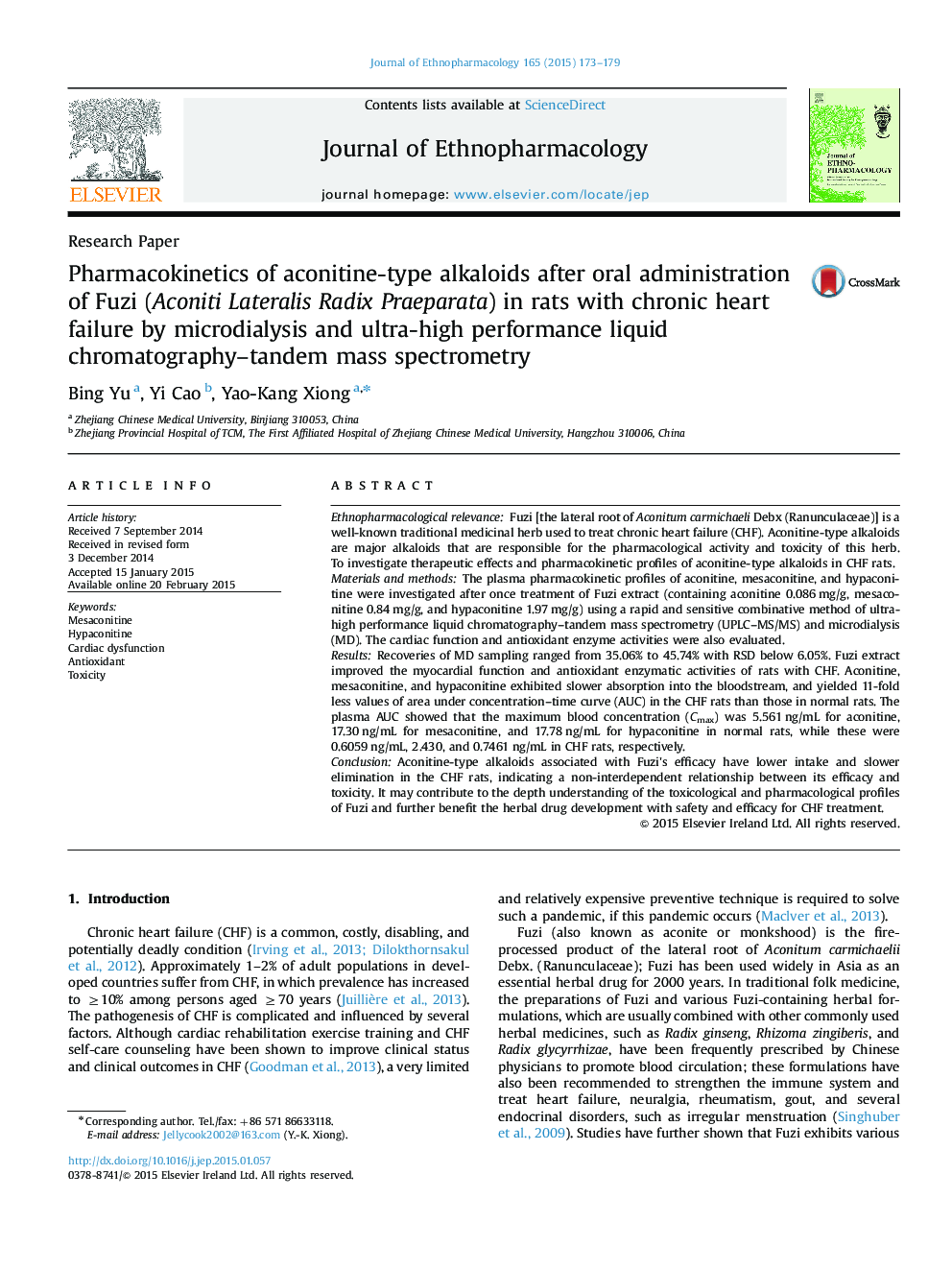| کد مقاله | کد نشریه | سال انتشار | مقاله انگلیسی | نسخه تمام متن |
|---|---|---|---|---|
| 2545067 | 1560397 | 2015 | 7 صفحه PDF | دانلود رایگان |

Ethnopharmacological relevanceFuzi [the lateral root of Aconitum carmichaeli Debx (Ranunculaceae)] is a well-known traditional medicinal herb used to treat chronic heart failure (CHF). Aconitine-type alkaloids are major alkaloids that are responsible for the pharmacological activity and toxicity of this herb.To investigate therapeutic effects and pharmacokinetic profiles of aconitine-type alkaloids in CHF rats.Materials and methodsThe plasma pharmacokinetic profiles of aconitine, mesaconitine, and hypaconitine were investigated after once treatment of Fuzi extract (containing aconitine 0.086 mg/g, mesaconitine 0.84 mg/g, and hypaconitine 1.97 mg/g) using a rapid and sensitive combinative method of ultra-high performance liquid chromatography–tandem mass spectrometry (UPLC–MS/MS) and microdialysis (MD). The cardiac function and antioxidant enzyme activities were also evaluated.ResultsRecoveries of MD sampling ranged from 35.06% to 45.74% with RSD below 6.05%. Fuzi extract improved the myocardial function and antioxidant enzymatic activities of rats with CHF. Aconitine, mesaconitine, and hypaconitine exhibited slower absorption into the bloodstream, and yielded 11-fold less values of area under concentration–time curve (AUC) in the CHF rats than those in normal rats. The plasma AUC showed that the maximum blood concentration (Cmax) was 5.561 ng/mL for aconitine, 17.30 ng/mL for mesaconitine, and 17.78 ng/mL for hypaconitine in normal rats, while these were 0.6059 ng/mL, 2.430, and 0.7461 ng/mL in CHF rats, respectively.ConclusionAconitine-type alkaloids associated with Fuzi׳s efficacy have lower intake and slower elimination in the CHF rats, indicating a non-interdependent relationship between its efficacy and toxicity. It may contribute to the depth understanding of the toxicological and pharmacological profiles of Fuzi and further benefit the herbal drug development with safety and efficacy for CHF treatment.
Figure optionsDownload high-quality image (198 K)Download as PowerPoint slide
Journal: Journal of Ethnopharmacology - Volume 165, 13 May 2015, Pages 173–179